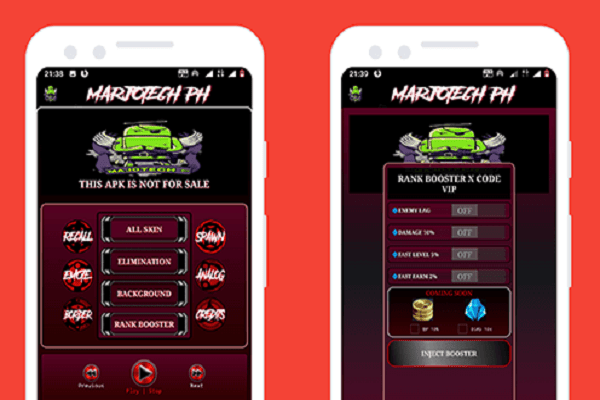The concept of artificial intelligence (AI) can bring up images of robots, sci-fi, and films with dystopian scenarios. But the reality is different. The majority of people aren’t aware that they are using AI in their everyday lives.
Apparently, AI is a part of everyday life, including using voice assistants to mapping apps. When we talk about travel tourism, this industry is experiencing a surge in machine learning and artificial intelligence usage.
How? We’ll discuss this question in this article and the effects of PG AI and machine learning on the travel industry.
Contents
What should you expect from travel bots?
Other than general questions, more airports and travel services will soon witness automated tasks taken by robots. Kansai International Airport recently introduced its automated Kiosk. Also known as Kate, with its help, they can move to the busy or crowded zones of the terminal when required.
The primary reason behind its creation is to speed up check-in lines and work by processing information related to passengers’ flow. This will, in turn, decrease the time spent waiting for passengers.
In addition to using applications that use artificial intelligence to enhance customers’ experience on the plane, there’s a variety of ways that booking companies can improve the user experience for their customers. One of the primary ones is to cut down on the time it takes to book and plan an itinerary.
Naturally, first-time travelers will spend more time with travel agents to understand the various options. However, frequent travelers will have a faster, more efficient process.
Chatbots and customer support
One of the most straightforward AI representations is in the chatbots that aid brands across every aspect of the tourism industry. There is already an increase in chatbot usage, whether people use them to get more info before booking or using them across social media platforms.
About 40% of companies have a chatbot in some form, and this number is likely to grow in the coming years. For travel companies, AI-enabled chatbots add another aspect to customer service by quicker responses and directing customers faster to the correct department.
Estimates of hotel and flight rates
AI-powered technology can offer a better service for those who wish to locate the most affordable rates on flights and hotels. When searching for a trip travel deal, travelers will often see that prices vary based on the provider’s expectation of making a purchase. It happens frequently, and it’s impossible to track these modifications manually.
So, smart devices monitor the ever-changing rates of flights and hotels and send out alerts with appealing deals when something is changed. Automated algorithms can recognize trends from the past and notify customers to inform them of specific times that could be busier and, consequently, more expensive than usual.
Creation of content
Content plays an essential aspect in your marketing as it increases interactions between brands. Imagery is an integral element of inspiring travel, and image recognition machine learning can offer an improved experience for customers when it comes to interfacing with photos of holiday scenes.
Virtual reality
Virtual Reality (VR) has attained tremendous popularity in the travel industry and is aiding in the development of the industry. By using headsets and our mobile phones, VR allows travelers to connect to any location around the globe.
It will change how we pick our destinations for holidays and help us better understand various nations’ tourist attractions and landmarks. Imagine putting on your VR headset and traveling into Rome’s Colosseum located in Rome. Nothing compares to it; however, VR technology offers the best alternative.
Augmented reality
As with VR, augmented reality (AR) allows users to view things using different lenses. However, this time AR can be used when you’re away on vacation. AR could transform an application for static maps using your smartphone into the equivalent of a 3D guide that shows you where you can find the closest eateries, stores, and other landmarks.
The technology can be efficiently utilized by hotels that offer local services to their customers or companies that want to create an AR experience for all travelers. From printed directions to maps to fully immersive maps that bring another dimension to vacation experiences. The evolution of the way we discover places is shifting into a whole new realm.
Processing and analysis of data
Although most AI for travel can benefit the traveler, some applications offer a B2B solution. The most well-known use of the technology is analyzing and gathering information to make more informed choices that affect customers to the best of their ability and improve business plans and pricing structures.
Artificial intelligence can sort through vast quantities of data in a short time. It can, in essence, locate a tiny needle within the vast haystack in a couple of seconds – something that would take us several days to discover. It results in streamlining aspects and customer service feedback to provide a clearer understanding of customer feedback in real-time. To understand this data in-depth, you would need training in this field. Signing up for a could help you in this regard.
Conclusion
Some aspects of AI aren’t going to hit their stride until a couple of years, and AI is constantly evolving to offer better services for the way brands work and the customer experience they receive. However, even today, AI is changing how several travel brands operate by providing a more efficient method to focus their efforts and continue offering the most enjoyable experience for their clients.
AI is not designed to replace human judgment; instead, it’s a tool worth using to improve our lives and business processes. The future will only be revealed as time goes on, and these machines can improve the travel experience and make our future promising. Great Learning offers various artificial intelligence online courses at different levels, from beginner to advanced. Check out their courses and pick one that suits you.




